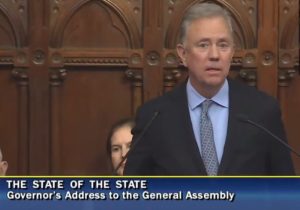Connecticut is one of 14 states selected to receive a $1 million federal grant to expand access to mental health and substance use disorder services.
The Substance Abuse and Mental Health Services Administration (SAMHSA), an agency within the U.S. Department of Health and Human Services (HHS), has awarded Connecticut with a one-year Certified Community Behavioral Health Clinic (CCBHC) Medicaid Demonstration Program planning grant. The initiative’s objective is to tackle the nation’s ongoing behavioral health and drug overdose crises as part of the Biden-Harris Administration’s strategy to transform behavioral health treatment throughout the country.
The states selected are Alaska, Colorado, Connecticut, Delaware, Hawaii, Louisiana, Maryland, Montana, North Carolina, North Dakota, South Dakota, Utah, Washington, and West Virginia as well as the District of Columbia. During the one-year planning phase, grant recipients are tasked with developing their CCBHC certification processes, establishing prospective payment systems for Medicaid-reimbursable services, and preparing an application to participate in a four-year demonstration program. In 2026, up to 10 of these states will be selected to participate in the CCBHC Medicaid Demonstration Program and receive enhanced Medicaid reimbursement.
CCBHCs are required to serve anyone who requests care for mental health or substance use, regardless of their ability to pay, place of residence, or age.
The Connecticut Hospital Association (CHA) continues to advocate for policies to augment the availability of community-based behavioral health services. The growing demand for mental health and substance use treatment is evident in overcrowded hospital emergency departments (ED), which are often the only option for patients who are denied or delayed care in more appropriate settings. The state can take important steps to enhance access to timely acute and preventive care, such as establishing Medicaid rate structures for initiatives like children’s behavioral health urgent care centers, making emergency mobile psychiatric services available statewide during high-demand times, expanding community-based and school-based services to all areas of the state, and instituting Medicaid reimbursement for care coordination initiatives, including but not limited to collaborative care model (COCM) services and community care teams (CCTs).
Learn more on CHA’s website here.



